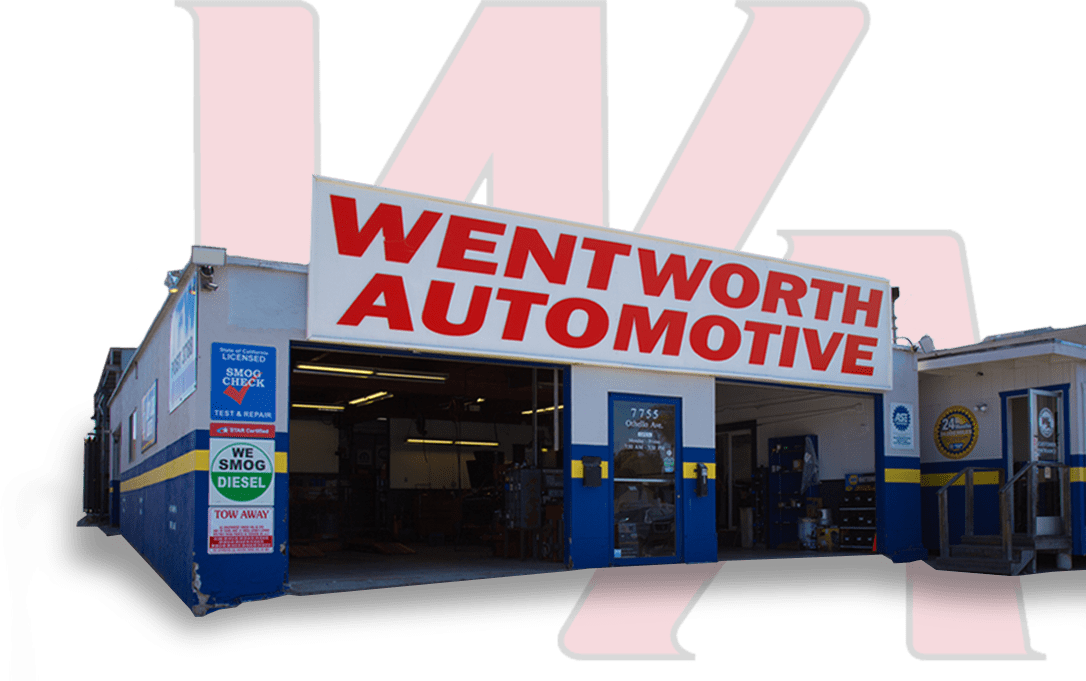Your Dealership Alternative Since 1998
Reliable Auto Repair in Clairemont & Kearny Mesa
We Work With Major Fleets Companies

Where Family Values Meet Auto Care
Founded in 1998, Wentworth Automotive has built a reputation as a trusted, family-owned repair shop dedicated to professionalism and customer-focused service. Our ASE-Certified and Factory Trained Technicians deliver expert care across all areas of automotive repair.
Every service includes a digital vehicle inspection, giving drivers clear, transparent recommendations to make confident decisions. Backed by a 5-year/100,000-mile in-house warranty and a 3-year/36,000-mile nationwide warranty through NAPA, we stand behind our work with quality and integrity that lasts.
Our mission is to simplify auto repair while providing a positive experience every time you visit — we invite you to stop by and experience the difference today.
Where Customer Trust Meets Five-Star Service
Your Full-Service Auto Shop
Our team combines technical expertise with a customer-focused approach to deliver reliable automotive care. Every visit includes transparent communication, digital vehicle inspections, and professional workmanship backed by a 5-year/100,000-mile in-house warranty and a 3-year/36,000-mile nationwide warranty through NAPA. We make it simple to keep your car running smoothly while providing the peace of mind you deserve.
Driven By Our Core Values
Do The Right Thing.
Integrity is not about convenience. It’s an unwavering commitment to do the right thing in every action we take and in every decision we make, even when no one’s looking. Make decisions that build strong, trusting relationships.
Make quality personal.
At Wentworth Automotive, we do not do good, we do great. Take pride in the quality of everything you touch and everything you do. From the way you perform an inspection to the final touches before delivering the vehicle to the customer, from the smallest service to the three-day engine job, always ask yourself, “Is this my best work?”. Remember that absolutely everything “speaks” to our customers, and everything you touch has your signature. Customer’s vehicles are driving billboards that advertise our commitment to quality and how much we care.
Be Performance Driven.
We appreciate effort, but we reward and celebrate results. Set challenging goals, and then go after them. Don’t shy away from metrics or accountability. Numbers are the best tools we have in order to help us understand how we’re doing and how we can improve our performance. Holding ourselves accountable for results reflects on our commitment to our mission.
Be a Superstar!
Be willing to do whatever it takes to accomplish the job…. plus a little bit more. Whether it’s starting early, staying late, or doing something that’s not in your job description, it’s the extra mile that separates the average person from the superstar. Be a superstar!
Continuous Improvement.
Constantly evaluate and reevaluate every aspect of your job. Don’t be satisfied with the status quo. The most successful people and organizations are in a never-ending pursuit of improvement.
Appearance Counts.
Your personal appearance makes a strong statement about the pride you take in your performance. Keep your uniform neat and clean. The appearance of our shop makes a similar statement about the quality of our work. Take responsibility to ensure that everything the client sees is clean, neat, and professional. It is not someone else’s job. It is everyone’s job. Remember Everything Speaks.
Embrace Innovation.
Nothing stays the same. Innovation creates energy and excitement. Our ability to innovate and change will set us apart from others in our industry. The more innovative we are will make us a stronger and more successful company.
Take Ownership.
No excuses, stories, or justifications. Take 100% responsibility for your successes, failures, what you do, and what you do not do (could have, should have). Everything speaks and taking responsibility for our actions and outcomes shows a commitment to excellence.
Set & Ask for Clear Expectations.
We judge situations not by what happens, but by how they compare to what we expected to happen. Nearly every misunderstanding can be traced to a difference in expectations. Learn to create mutually understood expectations in every situation.

Expert Care for All Vehicle Types
We provide expert care for all vehicle types, including domestic, import, hybrid, and diesel models, as well as light trucks and SUVs. Our factory-trained and ASE certified technicians follow manufacturer-recommended repair procedures and use OEM parts to ensure reliable results. Every service is backed by our 5-year/100,000-mile in-house warranty and 3-year/36,000-mile nationwide warranty through NAPA for lasting confidence on the road.
Added Convenience With Every Visit
3yr/36k nationwide NAPA warranty
5yr/100k in-house warranty
Free Drinks & Fresh Cookies
Complimentary Shuttle/Ride Share
Comfortable Waiting Area
Financing Options Available
Convenient Pick-Up & Drop-Off
Digital Inspections With Every service
Added Convenience With Every Visit
3yr/36k nationwide NAPA warranty
100,000-mile parts & labor warranty
Free Drinks & Fresh Cookies
Complimentary Shuttle/Ride Share
Comfortable Waiting Area
Financing Options Available
Convenient Pick-Up & Drop-Off
Digital Inspections With Every service

GET IN TOUCH
Contact Form
Thank you for contacting us.
We will get back to you as soon as possible. Can't wait? Call us at 858-541-1044.
Please try again later.

GET IN TOUCH
Contact Form
Thank you for contacting us.
We will get back to you as soon as possible. Can't wait? Call us at 858-541-1044.
Please try again later.








